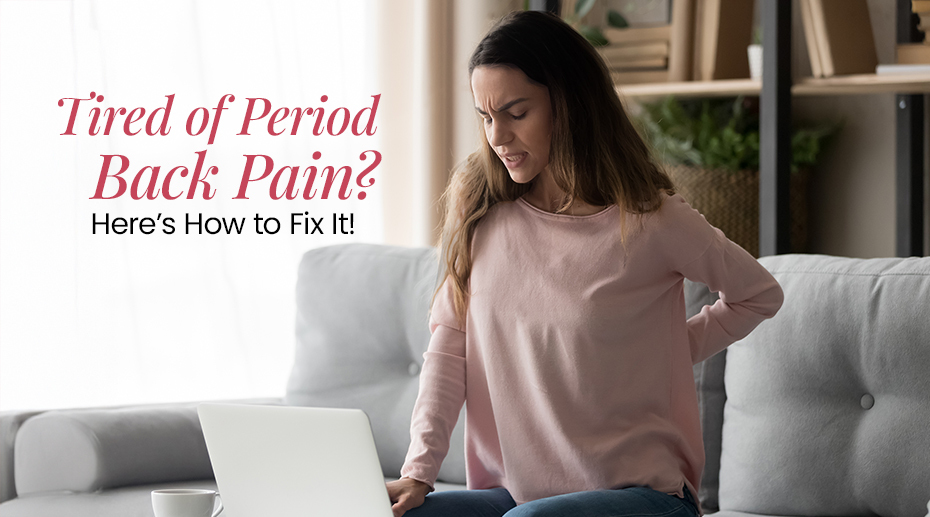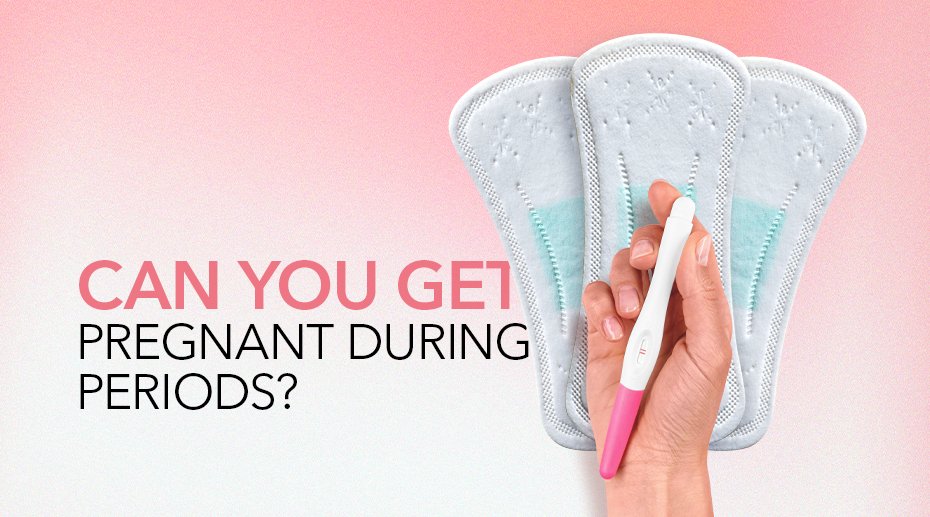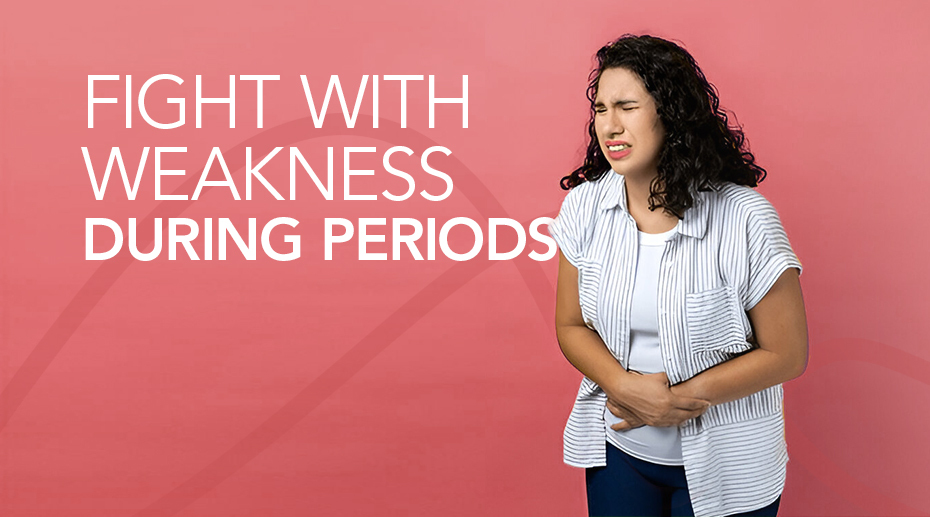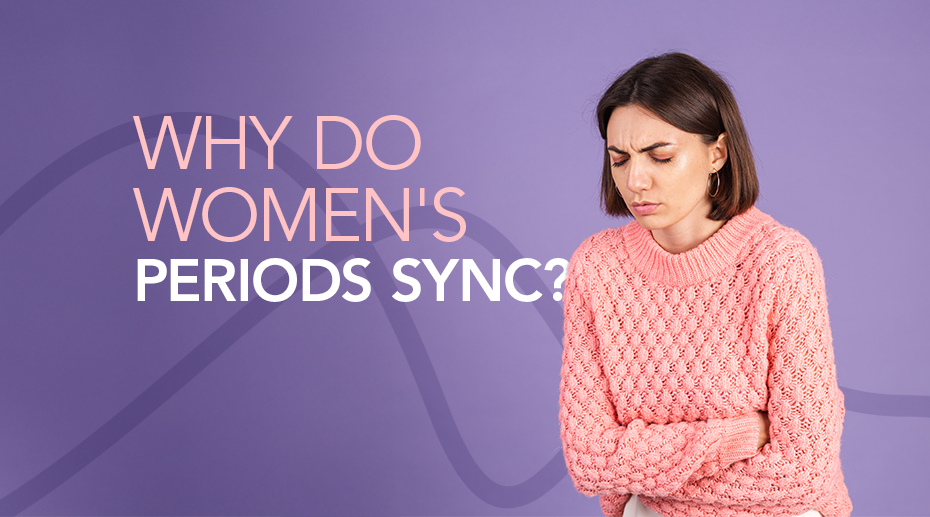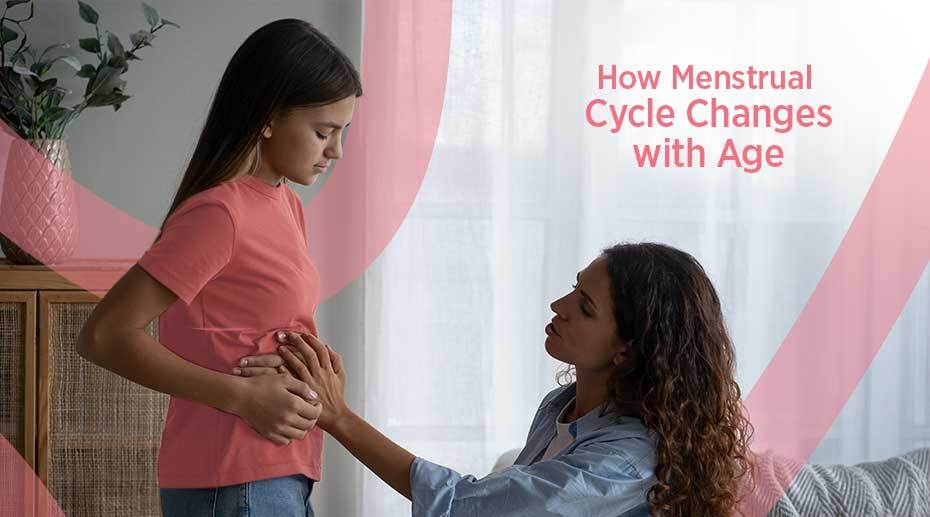
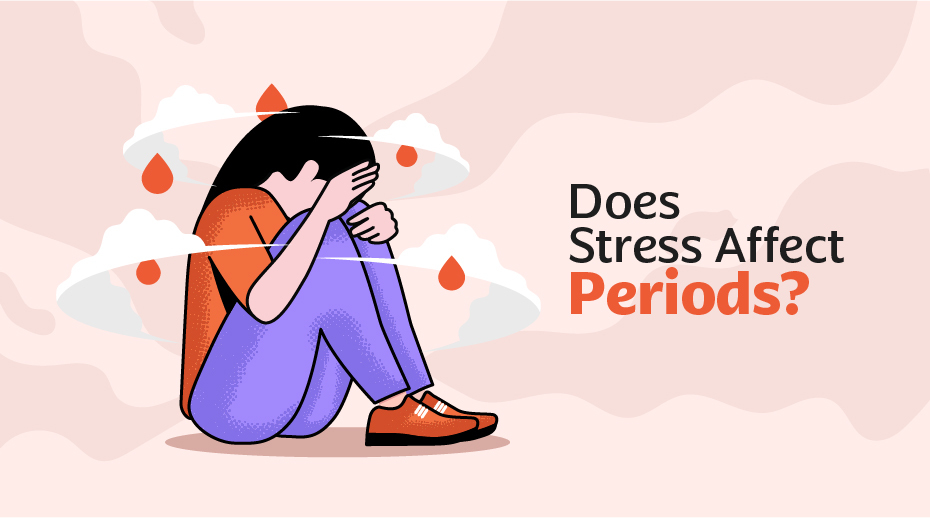
Relation Between Stress and Periods
Every day, we have a million things to take care of. It can feel like we’re burning the candle at both ends a lot of the time. Your body’s worry response turns on the hypothalamic-pituitary-adrenal (HPA) system. It is this route that makes more cortisol and corticotropin-releasing hormone (CRH). There is a link between stress and periods because when cortisol and CRH levels are high, they can stop the body from making its own reproductive hormones.
This can cause all kinds of menstrual hiccups. Aunt Flo might just decide to ring the doorbell a little early or a little later than expected. This is why you shouldn’t worry if you’re feeling stressed and your period is acting up. Your body is just trying to deal with the stress, and occasionally your cycle gets caught in the crossfire.
Here are some quick facts:
- Irregular menstrual cycles can be caused by high stress levels.
- Several processes in your body can become messed up by these hormones.
- Anxiety can make endometriosis, PCOD & PCOS symptoms worse.
- Anovulation, or not ovulation, can happen whenever there is a lot of stress.
- A healthy diet supports stress management and menstrual health.
Can Stress Cause Heavy Periods?
As you know, the big fat answer to your question “does stress affect periods” is yes. But did you know it can also cause heavy bleeding? Yep, stress and periods are closely linked, and stress can indeed cause heavy periods.
When you’re stressed, your body goes into overdrive, producing more cortisol and corticotropin-releasing hormone (CRH). These hormones can play toughball with your reproductive hormones, leading to all sorts of menstrual changes. One of these changes can be heavier bleeding than usual.
So, “Can stress cause heavy periods?” Absolutely. When your hormone levels are out of balance due to stress, it can make your periods heavier and longer. This happens because the balance of hormones that regulate your menstrual cycle gets disrupted. In short, stress puts everything off track, and your periods are no exception.
Hormonal Changes in the Menstrual Cycle Caused by Stress
You know our hormones are responsible for controlling your menstrual cycle. Let’s see how.
FSH and LH
The release of luteinizing hormone (LH) and follicle-stimulating hormone (FSH) can be affected by stress, which can interrupt brain-ovaries communication. When stress comes in, these hormones stop the egg from maturing and releasing.
Estrogen and Progesterone
Estrogen and progesterone levels rise and fall in important ways that get the uterus ready for pregnancy. It’s like these hormones are playing hide and seek when stress hits; their amounts can change without warning, making the uterus not sure if it should build up its lining or not.
Feedback Loop Disruption
Through the hypothalamic-pituitary-ovarian axis, the brain communicates with the ovaries. High cortisol levels from stress can get in the way of this communication. The communication line between your brain and ovaries becomes hazy, resulting in mixed signals and poor communication.
Adrenal Glands
In response to stress, these small but potent cells release cortisol. When cortisol levels go through the roof, the adrenal glands are sounding the alarm. But instead of a fire, it’s a hormonal meltdown that can louse up the menstrual cycle’s balance.
How Stress Affects Periods?
Stress can cause a lot of ups and downs in your body, affecting how your periods occur. Therefore, having a list of self-care tips during periods is a blessing in disguise.
Let’s explore the different relationships of stress and periods:
Painful Periods
Your uterus contracts and sheds its lining during periods. As it should be, one of your hormones, progesterone, tells this muscle when to tighten up and when to loosen up. In a way that feels like a big squeeze, stress makes your body make more progesterone. It makes those cramps feel even worse, like adding fuel to the fire.
So, the next time you’re in unbearable pain during your period, keep in mind that stress could be the cause of those terrible cramps.
PMS
During PMS your body enters full-on panic mode when stressed, releasing a rush of hormones like adrenaline and cortisol. Your mood, energy, and even your appetite can all be negatively impacted by these hormones.
Stress can mess with serotonin, a neurotransmitter that makes you feel good and helps control your mood and hunger. Your emotions seem to be on a wild ride, with ups and downs that seem to appear out of nowhere.
Don’t forget about sleep. Stress and anxiety can disturb your patterns of sleep, leaving you feeling tired. It is the perfect addition to the formula for worsening PMS symptoms.
Irregular Periods
Your body starts making hormones like adrenaline and cortisol when you’re stressed. Your whole hormonal balance can get spoiled by these hormones, which can make your menstrual cycle less smooth. When your cortisol levels are through the roof, it can stop other hormones that are needed for your period from being made.
Spotting
When you’re stressed, it can screw up your hormones, especially estrogen. This is where estrogen comes in. It helps keep the lining of your uterus healthy and happy. But when stress throws things off, estrogen levels can drop, which can make that lining less stable.
Spots are the little drops of blood you might see between periods that are caused by this shedding.
Heavier Bleeding
Hormones in your body, particularly cortisol, can become out of sync when you are stressed. Your hormones, such as estrogen and progesterone, usually keep your uterus in good shape. This irregular shedding can make your period bleed more heavily, and you may even pass blood clots that are bigger than normal.
Missed Periods
When you’re stressed, your body releases the stress hormone cortisol. This can screw up the amounts of other hormones, such as estrogen and progesterone. Your body may delay or even skip ovulation, the process of producing an egg from your ovary if these hormones are not balanced. This can cause you to miss your period.
How to Manage Stress for Getting Regular and Healthy Periods?
Let’s regulate your periods. Here are a few ways:
Practice Yoga
The practice of yoga during periods promotes awareness of the body, mind, and feelings. Developing this mind-body link helps you to become more aware of your stress levels and to create efficient coping strategies. Better control of stressors that could affect the menstrual cycle is possible when one is self-aware.
Weight Management
By raising insulin and estrogen levels, extra weight, especially visceral fat around the abdomen, can upset hormonal balance. This unbalance might worsen PMS symptoms and cause irregular menstrual cycles. You can support a more steady hormonal environment by helping to control insulin and estrogen levels by keeping a healthy body weight.
Exercise Regularly
Since exercise causes the brain to produce endorphins, which are naturally occurring painkillers and mood enhancers, it is a natural stress reliever. Regular exercise can lower stress hormones like adrenaline and cortisol, fostering a more balanced hormonal environment that is favorable to a regular menstrual cycle.
Meditation
It is well known that meditation can help one to relax both physically and mentally. Regular practice of meditation can help people reduce their body’s main stress hormone, cortisol. A normal menstrual cycle depends on the hormonal environment which is more balanced when cortisol levels are lower.
Take Vitamin D
Neurotransmitters such as serotonin, which control mood and mental health, are synthesized in part by vitamin D. Decreased rates of anxiety and depression, two conditions that can worsen stress, have been associated with adequate vitamin D levels. Vitamin D reduces the psychological consequences of stress on the body by encouraging a good mood.
Get Adequate Sleep
Hormone levels—including those related to the menstrual cycle—are greatly regulated by sleep. Inconsistencies in the menstrual cycle can result from disturbances to the sleep-wake cycle, which can impact the synthesis of hormones such as cortisol, progesterone, and estrogen. Those who give good sleep first priority can support a regular menstrual cycle and preserve hormonal equilibrium.
Conclusion
In wrapping up, it’s crystal clear that stress and periods are like close pals who just can’t stay away from each other. But hey, stress isn’t exactly our BFF when it comes to keeping our periods happy and regular. In fact, it’s kind of like the annoying party crasher that destroys the vibe.
We have got some tricks to keep stress in check and let our periods run smoothly. From catching quality Z’s to busting out those yoga moves or even indulging in some meditation sessions, there are plenty of friendly ways to show stress who’s boss.
And hey, if those cramps are feeling like a mini tornado in your tummy, don’t forget about the period pain relief gadgets. So, let’s stress the ol’ one-two punch with some good vibes and self-care rituals.
Cheers to the harmonious relationship between stress and periods- or better yet, no relationship at all.
Know More Regarding Stress and Periods
Does stress delay periods?
Yes, you can experience a few days late periods or miss a period if the stress is temporary. Menstruation can be more irregular or nonexistent, though, if the stress is ongoing.
How to manage stress to ensure regular periods?
The negative effects of stress on your health may be reduced by exercising, getting enough sleep, eating a good diet, confiding in friends and family, and engaging in positive social activities.
What does a stress period look like?
Your body might not be able to produce sex hormones when stress increases your cortisol levels. Spotting and other menstrual abnormalities can follow from this. Generally speaking, spotting shows up as little blood drops in your underwear or a pink, crimson, or brown tint to your discharge.
What kind of stress delays your period?
Long-term or chronic stress can cause the menstrual cycle to be substantially later or perhaps completely missing for a month or several months. Those who are under a great deal of stress over an extended period of time sometimes have very irregular menstrual periods.
What are the physical signs of stress?
Here are the physical signs of stress you should look out for:
- Fatigue
- Sore eyes
- Indigestion
- Chest pains
- Sleep problems
- Sweating
- Muscle aches
What are the 5 physiological signs of stress?
Here are a few physiological signs:
- Rapid heart rate
- Feeling exhausted
- Tired all the time
- Poor problem-solving capabilities
- Anxiety that stressor won’t go away


